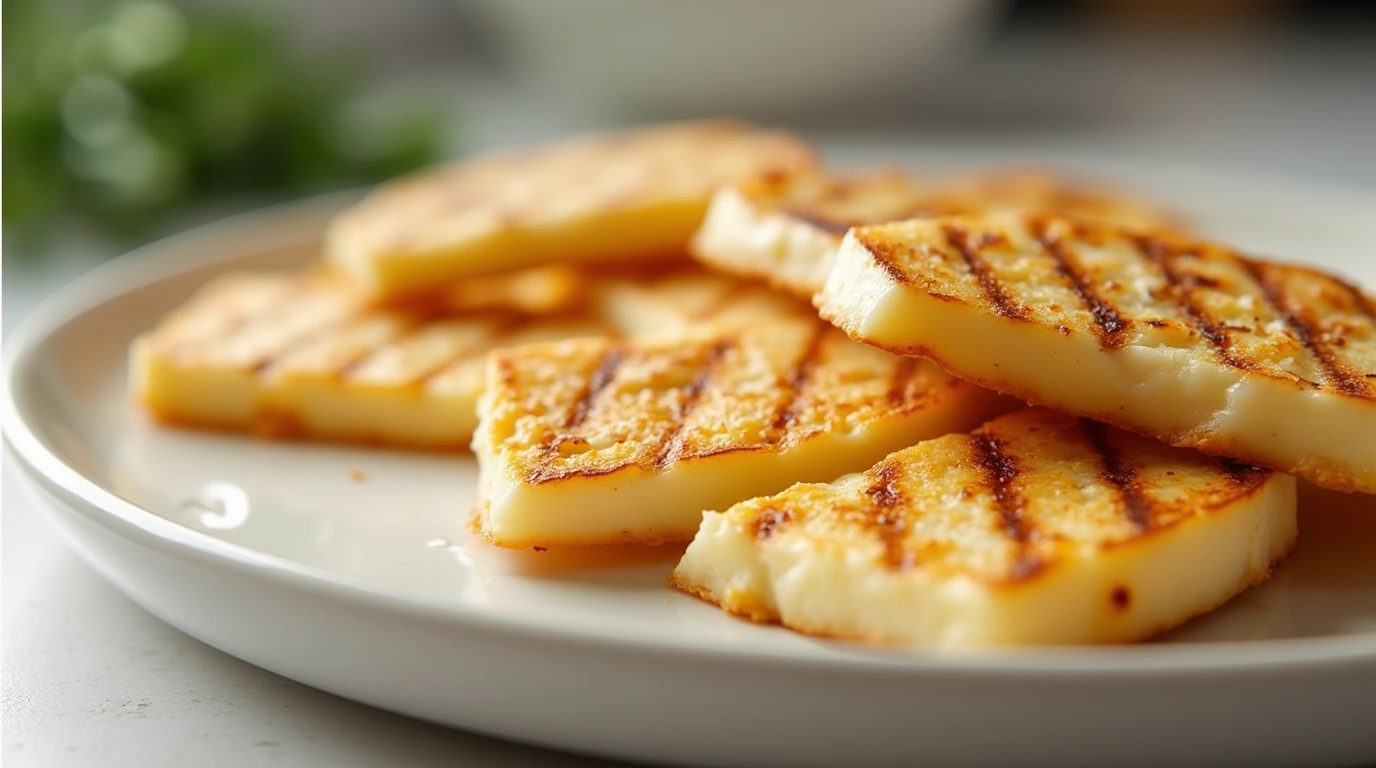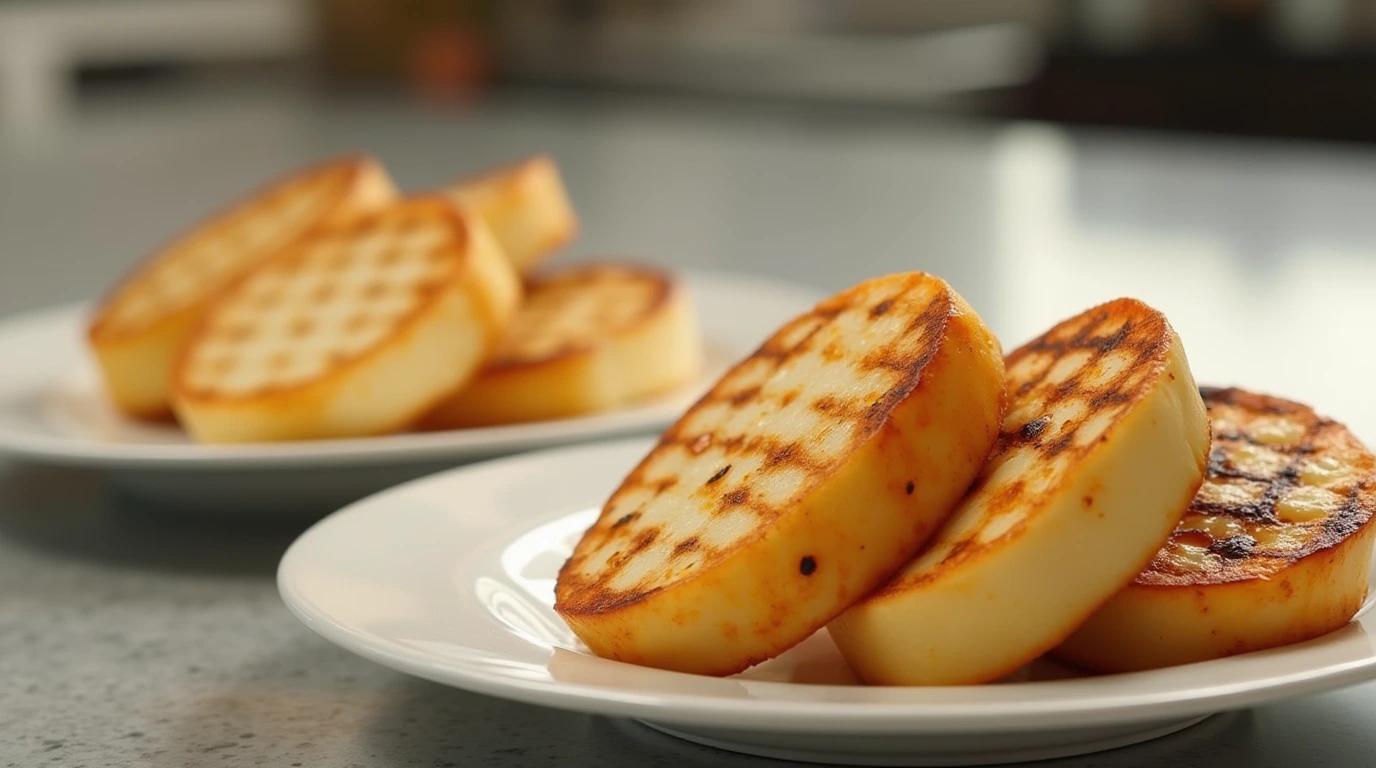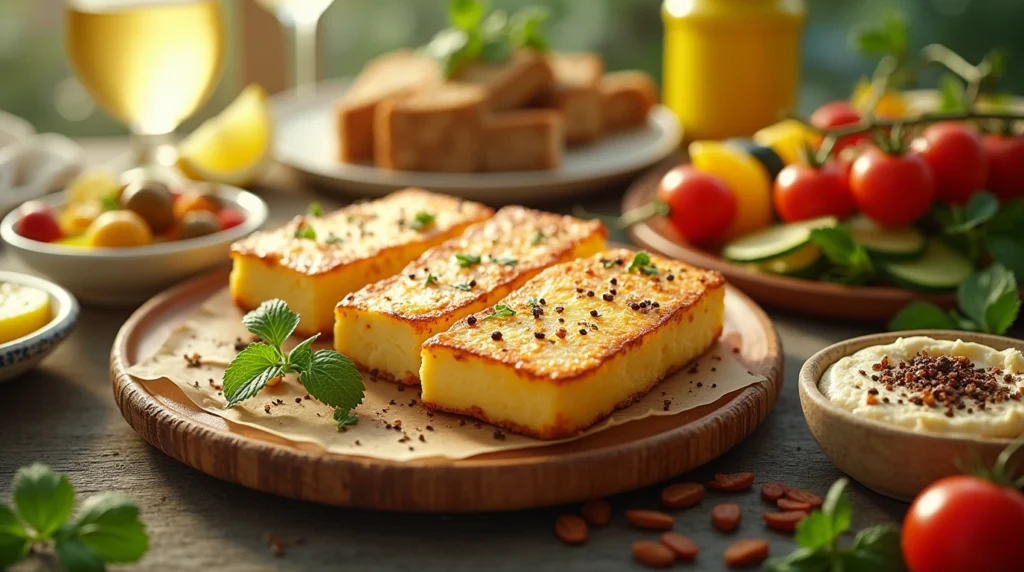Halloumi cheese is a beloved staple of Mediterranean cuisine, celebrated for its unique taste and versatility. Whether you’ve tasted it grilled, fried, or raw, halloumi leaves a lasting impression on the palate. But what exactly does halloumi taste like, and why has it become a favorite around the globe? Let’s dive into its flavor profile, texture, and culinary applications.
What is Halloumi Cheese?
Halloumi is a traditional Cypriot cheese made primarily from sheep’s and goat’s milk, although cow’s milk is sometimes added. Its defining characteristic is its high melting point, which makes it perfect for grilling or frying without losing its shape. Its brined preparation gives it a salty and tangy taste that is truly unique.
Learn more about the origins of this incredible cheese in this comprehensive guide on Cypriot cheeses.
The Unique Flavor of Halloumi
The flavor of halloumi can be described as a combination of:
- Salty and Tangy Notes
The brining process gives halloumi its signature saltiness. This is balanced with a subtle tang that adds depth to every bite. - Creamy and Milky Undertones
Despite its firm texture, halloumi has a creamy flavor when you bite into it, reminiscent of other soft cheeses like mozzarella.
How Does it Compare to Other Cheeses?
Halloumi stands out from cheeses like feta or mozzarella because of its squeaky texture and resilience to heat. If you’re curious about how to grill halloumi to bring out its best flavors, check out these techniques and tips.
The Unique Texture of Halloumi
One of the most talked-about characteristics of halloumi is its texture. When eaten raw, it is firm and slightly rubbery. However, cooking transforms it into something magical: the outside becomes crispy while the inside remains soft, retaining its signature squeaky bite. This makes it an ideal choice for dishes that require a hearty, satisfying element.

How Cooking Methods Enhance Halloumi’s Taste
Halloumi’s flavor and texture can vary significantly depending on how it’s prepared:
- Grilling
Grilled halloumi develops a smoky, charred exterior that contrasts beautifully with its creamy interior. - Frying
Frying halloumi creates a crispy, golden crust while intensifying its natural saltiness. - Baking
Baking mellows the tangy notes of halloumi and results in a softer, less chewy texture.

Culinary Applications of Halloumi
Halloumi’s versatility makes it a staple in many dishes:
- Salads
Add grilled halloumi to salads for a warm, salty contrast to fresh vegetables. - Meat Substitute
Its hearty texture makes it an excellent vegetarian replacement for meat in sandwiches and wraps. - Appetizers
Halloumi can be served on skewers with vegetables or fruits like watermelon for a refreshing, sweet-salty combo.
Pairing Halloumi with Other Flavors
Halloumi pairs well with various ingredients to create delicious combinations:
- Fruits: Try halloumi with watermelon, figs, or pomegranate for a sweet and savory balance.
- Vegetables: Pair it with roasted tomatoes, zucchini, or eggplant.
- Herbs and Spices: Enhance its taste with mint, oregano, or chili flakes.
Nutritional Profile of Halloumi
Halloumi is not only delicious but also a good source of protein and calcium. However, it is high in sodium and fat due to its brining process. For a more detailed breakdown of halloumi’s nutritional value, visit this health-focused guide.
Frequently Asked Questions (FAQs)
Can You Eat Halloumi Raw?
Yes, halloumi can be eaten raw, although cooking enhances its flavor and texture.
Is Halloumi Suitable for Vegetarians?
Traditional halloumi is vegetarian-friendly since it does not contain rennet from animals.
How Should Halloumi Be Stored?
Store halloumi in its brine or wrap it tightly in plastic to maintain freshness.
Can You Freeze Halloumi?
Yes, halloumi can be frozen, but its texture may slightly change upon thawing.
Conclusion
Halloumi cheese is a unique culinary treasure with its distinctive salty, tangy flavor, and squeaky texture. Whether grilled, fried, or baked, its versatility ensures it complements a wide range of dishes. Experiment with it in your cooking and discover why halloumi continues to win hearts worldwide.



